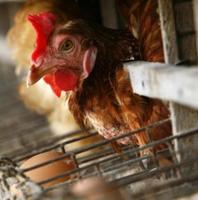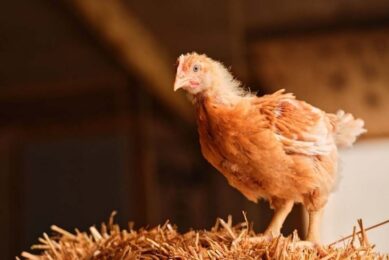Defra: New UK regulations to safeguard chickens

UK Agriculture Minister Jim Paice has made it clear that British consumers deserve to see only eggs from hens kept in better welfare cages on supermarket shelves once the EU-wide 2012 “battery” cage ban comes in.
Paice reinforced the Government’s commitment to high welfare standards in a speech to the Egg and Poultry Industry conference. He said, “The UK industry has worked hard to convert out of battery cages ahead of the European deadline – so it wouldn’t be fair to them to have to compete with eggs from other European countries that haven’t met the deadline.
“I’ve told the Commission we won’t want to see any eggs imported from European countries that haven’t complied with the conventional cage ban after 2012.
Stocking density
A maximum legal stocking density for chickens of 39 kg/m2 will be established through a new regulation. “For the first time there will be a legal maximum stocking density for meat chickens, which will provide a good baseline for our already high standards of poultry welfare – and much of the industry already meets many of the new requirements,” Paice added.
The NFU however. believes the legislation laid before Parliament, including maximum stocking densities of 39kg/m2 in England, (as well as Wales and Scotland under devolved powers), will put farmers in Great Britain at a competitive disadvantage and threaten the industry.
NFU poultry board chairman Charles Bourns added: “This is clear and simple gold plating by our government and it will be damaging to the UK industry. Approximately 55% of chicken imports into the UK come from Holland and Poland where producers have had to come down to 42kg/m2, their new legal limit. This means that NFU members will not be able to compete with this chicken being imported into our market.”
Beak trimming
Paice also made clear the Government’s commitment to work towards a complete ban on beak trimming of laying hens, while lifting a ban on routine beak trimming that could inadvertently have led to worse welfare for hens. The regulation will only allow beak trimming using infra-red technology.
The Government will work with the industry and the Beak Trimming Action Group to find alternatives to beak trimming, with a view to banning the practice in 2016.
Both regulations are subject to debate in the House of Commons and House of Lords before they can be made and come into force.
Join 31,000+ subscribers
Subscribe to our newsletter to stay updated about all the need-to-know content in the poultry sector, three times a week. Beheer
Beheer








 WP Admin
WP Admin  Bewerk bericht
Bewerk bericht